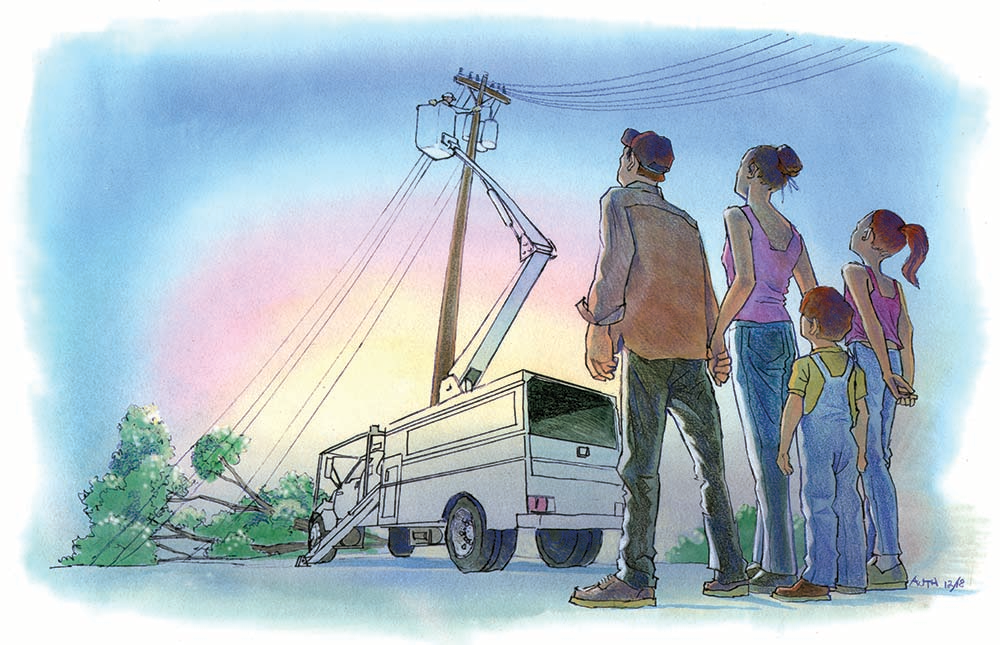
Hurricane season is over.
Officially at least.
If you were where a storm hit, the season was a bad one. If the storms missed you, it wasn’t.
If you were a lineman working for an Alabama rural electrical co-op, where a hurricane hit was not the issue. That one hit at all was what mattered.
I first became aware of this in late September 2004. I left my home in North Alabama to check on our coastal cottage. Hurricane Ivan had roared ashore at Gulf Shores the week before and since we were on the west side of the storm, the worst side, I was afraid of what I would find.
As I drove south on the Interstate, I passed scores of bucket trucks, driven by linemen from parts of the state that had not been hit. They knew what was needed and were there to provide it.
They were putting the co-op in cooperation.
Until you have been through a coastal storm and seen what one can do, it is hard to imagine the magnitude of the destruction. And until you have been without power for a few days, it is equally hard to imagine how you ever lived without it.
Recently Hurricane Michael reminded the Florida Panhandle and some of South Alabama just what nature can do.
Mexico Beach, east of Panama City, was described as a “war zone.”
Carrying the analogy further, the response to the disaster was not unlike the way our military responds in wartime. Get boots on the ground, equipment and supplies in place, do the job you are trained to do, while back at headquarters, the coordinators decided who goes where, what resources are needed, and how best to repair what has been damaged and destroyed.
It is a massive undertaking.
We were down on the coast when Michael hit. Though the worst of it was east of us, our power went out like everyone else’s.
Then the “first responders” arrived and went to work.
In the past I thought of first responders as police, firefighters, rescue workers and such. After Michael I put linemen, right-of-way crews, engineers and mechanics in that category.
While the first responders were doing their work, we repacked frozen food in ice we had laid up when the storm approached. We fired up the grill to cook what we could, and set out the candles, flashlights, and lanterns that we kept in the “hurricane box” that we hoped we would never need.
The sunset was beautiful. The storm had churned up all sorts of atmospheric clutter and the red rays bouncing off the bits and pieces were a delight to the eye.
Then it was dark.
Really dark.
Except for an occasional flashlight beam or the glow of a lantern in a window across the way, there was nothing.
It was a long night.
The next day we sat around, listened to the battery-operated radio, and waited for the dark.
It came.
And after that, the dawn.
Then another day of waiting until, just before sunset, electric lights flickered, then came on and held steady. Refrigerators and air conditioners began to hum.
Civilization restored.
The co-ops, cooperating, had done the job.
Harvey H. (Hardy) Jackson is Professor Emeritus of History at Jacksonville State University and a columnist for Alabama Living. He can be reached at [email protected].




